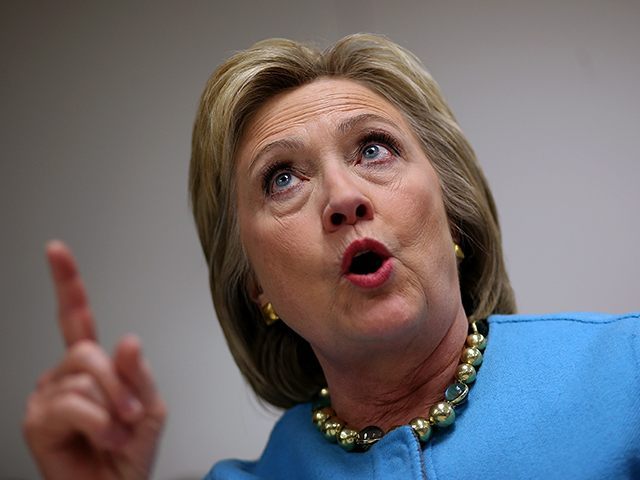U.S. District Court Judge Rudolph Contreras on Tuesday rejected the State Department’s request for a one-month extension in the deadline to release the rest of Hillary Clinton’s emails.
If this request had been granted, the last production of emails would have occurred only after several more Democrat presidential primaries.
The Washington Examiner notes that Contreras was willing to give the State Department some leeway, asking it to “publish what they could by February 18 at the latest.”
This would seem to put the ball back in State’s court, allowing them to decide what they can produce by the new soft deadline. They already missed the original January 31 deadline, at one point announcing an “error” that involved “overlooking” more than 7,000 pages of material.
They’ve also claimed recent snowstorms in Washington, D.C. prevented them from publishing the emails on time. Critics have noted that the State Department could have completed security reviews and redaction of the emails long before the scheduled production dates, instead of reviewing and releasing them in batches.
We’ve gone from Clinton’s original promises that no classified material was kept on her private mail server, to the State Department missing multiple court-ordered deadlines because it has so much classified material to redact.
The Hill portrays Judge Contreras as “scolding” the Administration for failing to meet the original deadline. “Government has put me between a rock and a hard place, which is a position I don’t want to be in,” he said.
Lawyers for the plaintiff in the Freedom of Information Act lawsuit driving this release, Vice News reporter Jason Leopold, warned that the final round of Clinton emails are difficult to sanitize for public consumption, because they may be “the most controversial” of the lot, and must be reviewed by many different agencies before release.
According to their estimates, this cabinet full of smoking guns won’t be open to the public until the day before the “Super Tuesday” primary on March 1, which won’t give the media much time to read them, or voters much of a chance to digest them before heading for the polls. Funny how that worked out.
Judge Contreras was well aware of the timing. “That seems an unreasonably long period of time to post or get access to something that’s already past the clearances,” he said to the government’s lawyer. “I understand the system is complex, but that’s over a week’s time. These documents have a lot of public interest, and the timing is important.”
Ryan James, an attorney representing Vice News in the case, called the State Department’s request for an extended deadline “a big middle finger in the air to folks in the early voting states of Iowa, New Hampshire, Nevada, and South Carolina.”
“This request meant voters in those states were being asked to cast ballots in the Democratic primary before the information in these emails would be made public,” said James.
Contreras ordered the Administration to explain in writing, by the end of the day on Wednesday, why it can’t release the emails that have already completed security review, and by the end of the week the Administration must provide “a detailed explanation of how this problem arose, what cause it and why it wasn’t noticed until just recently.”

COMMENTS
Please let us know if you're having issues with commenting.